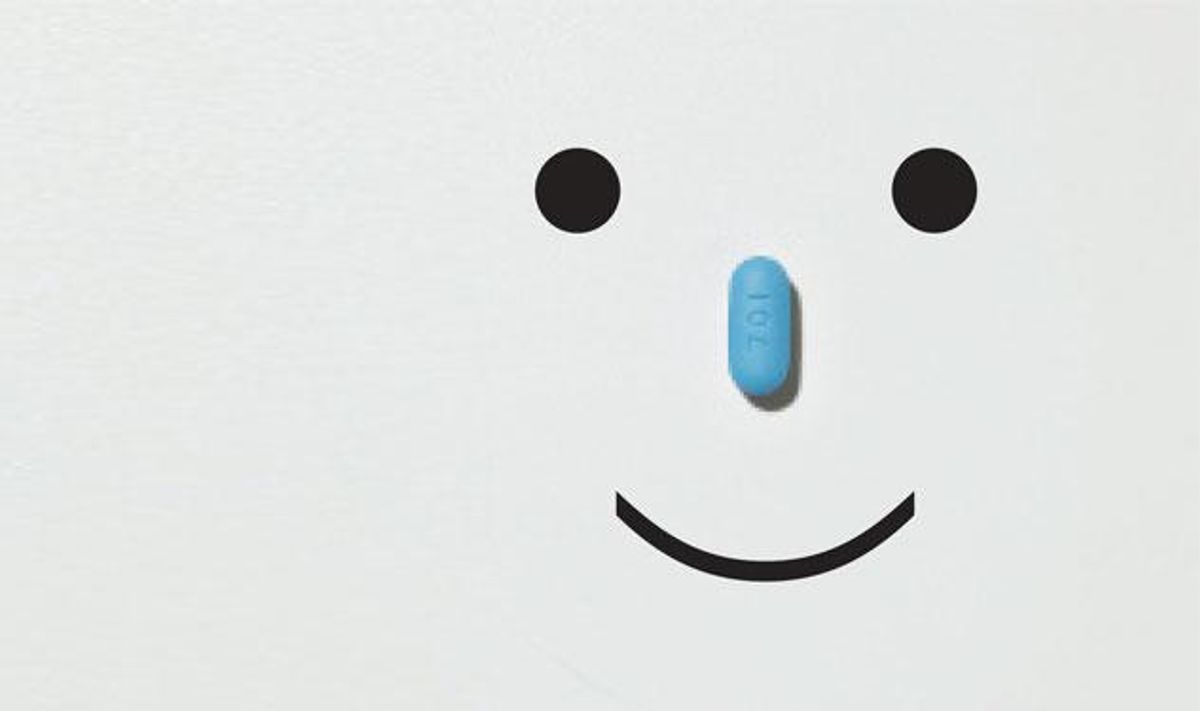
Some positive men believe their “undetectable” viral load makes them safe — but how safe is safe?
September 19 2013 4:00 AM EST
February 05 2015 9:27 PM EST
By continuing to use our site, you agree to our Private Policy and Terms of Use.

At a gay dinner party, Jason talked openly about accidentally having had bareback sex the night before. He had planned to use a condom, but he was drunk and his casual partner had shrugged, "I'm undetectable," as if there was nothing to worry about. Jason now wondered if he did have something to worry about. Around the table, consensus was that he should get tested in a few weeks, but that Jason would be fine. HIV is much less likely to be transmitted with an undetectable viral load--so much so that, on the street, "undetectable" has become shorthand for negative.
Calculating risk has become increasingly complicated in the age of undetectable. There are poz guys so convinced it's impossible to transmit as undetectable that they don't bother disclosing, and negative guys who aren't at all fussed about condoms after hearing that magic word. Anthony, a gay man who is positive but undetectable, recently dated a negative guy who kept pressuring him for unsafe sex. Anthony wasn't comfortable taking that chance, however remote, but after another blood test determined he was still undetectable, he relented.
Undetectable doesn't mean HIV is not there, just that it can't be found in a particular test. And it doesn't mean uninfectious, as a psychologist recently reported after a client tested positive following monogamous unsafe sex with his undetectable boyfriend. Just how difficult it is to transmit as undetectable is hard to calculate--is the probability higher or lower than, say, being electrocuted by a toaster? Nobody is putting a number on it, and the reality is that it's impossible to measure because there are too many variables. For one, viral load goes up and down, so it depends on when it was last measured, when exposure happened exactly, and... well, was he even being honest in the first place?
Condoms are still the most effective prevention against HIV, but that message is only background noise to the new safer sex -- barebacking with an undetectable status. Many practice their own forms of risk management: pulling out, strictly topping, or taking a cycle of antiretrovirals post-exposure (PEP). Some who are at high risk, and who can afford it, are prescribing themselves antiretrovirals preemptively, or PrEP (READ: "Is This the New Condom?").
Not that this do-it-yourself damage control is working, as HIV rates around the world continue to rise. In the United Kingdom, the Health Protection Agency reported an all-time high of gay and bisexual men diagnosed with HIV in 2011, a number that had almost doubled in 20 years. For those who do use condoms, like Jason, that plan can be compromised by alcohol, drugs -- or just the fact that it's happened before and everything turned out all right.
Instead of changing those patterns, we're consistently told what we want to hear: HIV is not a big deal, so go get tested. New York's Gay Men's Health Crisis emphasizes removing "stress around the test" with its nonjudgmental staff and testing sites. In Australia, ACON's "Ending HIV by 2020" campaign focuses on testing and getting treatment early, claiming, "If 90% are undetectable, HIV transmissions can stop." While that campaign has a stay safe component, it is overshadowed by a mathematical model that seems to suggest undetectable spells the end of HIV.
What is more and more undetectable are the consequences of an HIV diagnosis. Imagine if the jubilant "Just one pill a day!" message were replaced by those who are positive talking to the community about the stigma they face, the difficulty of disclosure, travel restrictions, side effects of medication, and fears about what it's doing to their body. If prevention education is failing, it's not so much an increase in risky behavior as it is the widespread trivialization of what it's like to live with HIV.
Want more breaking equality news & trending entertainment stories?
Check out our NEW 24/7 streaming service: the Advocate Channel!
Download the Advocate Channel App for your mobile phone and your favorite streaming device!